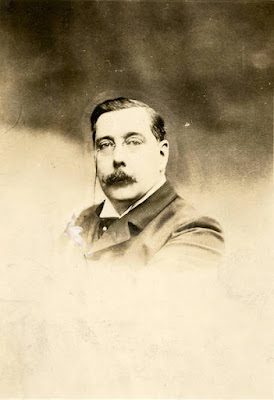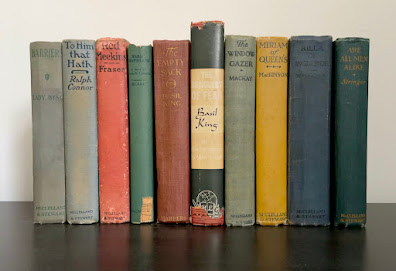A better year than last, right? I got out more, raised pints in pubs, saw my daughter, and spent seven days touring Quebec City and the Eastern Townships. Hell, I even saw a movie in a theatre.
I also visited more bookstores, though a depressingly small number were worth the effort. Six of this year's ten best buys were purchased online. Ted Allan's pseudonymously published Quest for Pajaro (London: Heinemann, 1957) is my favourite. I'd known about about this science fiction romance since 1983, but in all the years that passed had never come across a copy.
No surprise, I suppose.
Quest for Pajaro was published in 1957 by Heinemann. There was no Canadian edition. Was anyone distributing Heinemann in Canada back then? If so, were they aware that "Edward Maxwell" was in fact Montrealer Ted Allan?
Doubt it.
I purchased
Quest for Pajaro after having been invited to
comment on Allan's work at this year's Toronto Jewish Film Festival. While not his best book, it is his most intriguing. There hadn't been many many Canadian science fiction romances before 1957 – still aren't. What's more, the novel's linchpin is an experimental jet known as the "Arrow."
Bruce Petty's gorgeous jacket illustration puts it over the top.
What follows is the rest of the ten best:
Ted Allan
Toronto: McClelland & Stewart, 1977
The author's only children's book, this tale of a talented squowse (offspring of a squirrel and a mouse) proved one of the most enjoyable and life-affirming reads of the year. The fifty – fifty! – Quentin Blake illustrations brought further joy.
Whispering City
Horace Brown
Pickering, ON: Global
Blood on My Rug
E. Louise Cushing
New York: Arcadia, 1956A mystery novel that begins with the discovery of a body in a Montreal bookstore, since I'd long been searching for this novel. Might it be a candidate for reissue as a
Ricochet Book?
Nope.
Still, I'm still happy to have it in my collection.
Let Not Man Put Asunder
Basil King
New York: Grosset & Dunlap,
[n.d]
Though it's been two years since I bought, never mind reviewed, a Basil King novel, I leapt at this one. Let Not Man Put Asunder is either the seventh or eighth King novel to be adapted by Hollywood. IMDb does not recognize, but I have this photoplay edition as evidence.
Toute la Vie
Claire Martin
Quebec: Éditions de L'instant
même, 1999
I've admired Claire Martin since reading
Dans un gant de fer in CEGEP.
David Lobdell's translation of her Doux-Amer deserves a return to print. Imagine the thrill in finding three signed Martins during my recent visit to Quebec City. This is one.
In Spite of Myself: A Memoir
Christopher Plummer
Toronto: Random House,
2009
I regret many things in
leaving our St Marys home, not the least of which involves selling thirteen-hundred books,
In Spite of Myself amongst them.
I'm slowly been buying them back. This signed copy was found at the Kemptville Youth Centre Book Fair.
Marshall Saunders
Toronto: Standard
Publishing, 1897
I own many copies of Beautiful Joe, but this is by far the most... um, beautiful. At one dollar, it was the least expensive book I purchased this year.
The Countess of Aberdeen provides an introduction!
Félix-Antoine Savard
Ottawa: Éditions Fides, 1967Another Quebec City find, I came upon this inscribed, slip-cased edition on the very same day I made
my pilgrimage to the author's home.
I vow to read it in the New Year.
Poldrate Street
Garnett Weston
New York: Messner, 1944This old novel proved to be 2021's most unpleasant, stomach-turning read. Voyeurism, adultery, greed, murder, and something approaching necrophilia figure.
Good fun from a Toronto boy who made a killing in Hollywood before retiring to Vancouver island.
Two generous souls donated books to the Dusty Bookcase this year.
Lee Goldberg noted my interest in the novels of former Vancouver newspaperman Tom Ardies (Their Man in the White House, Kosygan is Coming) and was kind enough to send me newly published copies of This Briefcase is Going to Explode, Pandemic, Balboa Firefly, and Manila Time (the latter two written under Ardies' Jack Trolley nom de plume).
Lee is in the process of reissuing Ardies' entire bibliography through Brash Books.
More power to him!
Fraser Sutherland died this earlier this year. I was honoured to have been asked to provide an obituary for the Globe & Mail. One of the greatest challenges in its writing concerned family, specifically the name of a sibling, an older brother, who had died at a young age. Our newspaper of record is insistent on such things. It seemed not one of Fraser's friends could quite remember... and then one came through, which led me to this uncommon chapbook:
Published in 1976 by Northern Journey Press,
Within the Wound is dedicated to that brother, Hugh Sutherland (1941-1965). I shared this discovery with Fraser's good friend, Adrian King-Edwards of Montreal's Word Bookstore, who in turn presented me with this copy.
RIP, Fraser. You are much missed.

























































